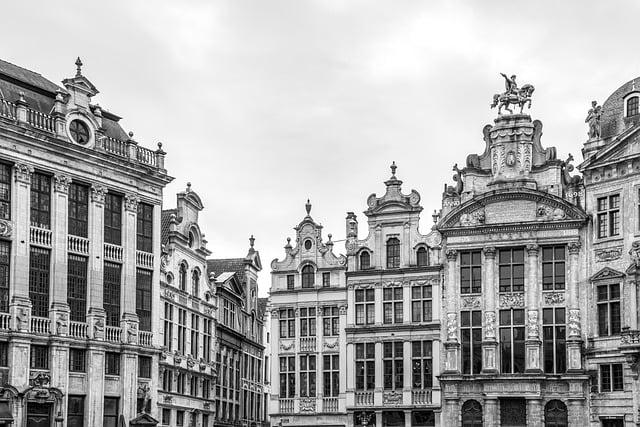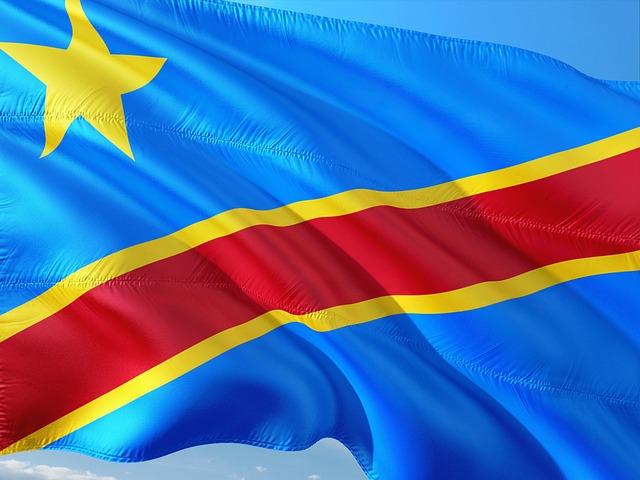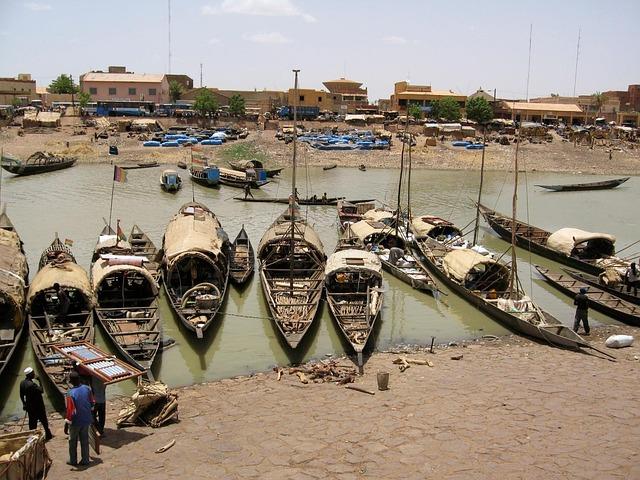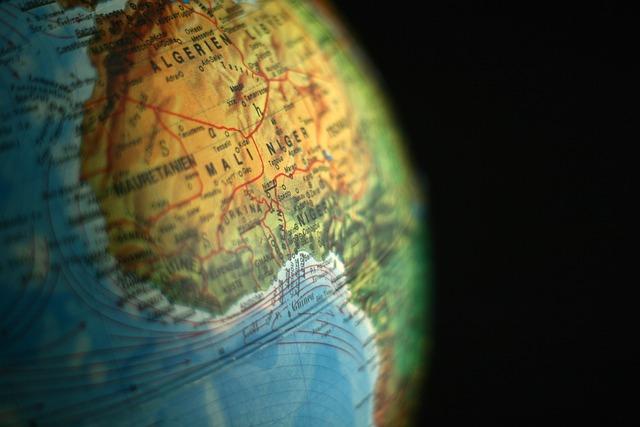In recent months, Mali has found itself at a critical crossroads marked by escalating tensions and widespread unrest. Human Rights watch has issued a compelling report urging the African Union (AU) to take decisive action in response to the government’s ongoing crackdown on opposition voices and dissent. As the Malian authorities intensify their efforts to suppress political opposition and restrict fundamental freedoms, concerns for the protection of human rights are mounting. This article delves into the findings of the report, examines the implications of the government’s actions for democratic governance, and highlights the urgent need for regional and international intervention to safeguard civil liberties in Mali.
Human Rights Violations in Mali: An Overview of Recent Crackdowns

the recent political climate in Mali has been marred by increased repression against opposition groups and dissenters, prompting widespread concern from international human rights organizations. The governing authorities have implemented a series of measures that infringe upon basic freedoms, including restrictions on freedom of expression, assembly, and the press. reports indicate that dissenting voices are being silenced through arbitrary arrests, intimidation, and violent crackdowns on protests.Critical activists and journalists face heightened scrutiny and risks of detention, undermining the country’s democratic processes and violating its constitution.
Among the key incidents that highlight these human rights violations include:
- Arbitrary Detentions: Numerous activists and political opponents have been detained without fair trials.
- Censorship of Media: Journalists reporting on government actions have faced threats and their publications have been shut down.
- Violence Against Protesters: Security forces have clashed with peaceful demonstrators, leading to injuries and fatalities.
The international community, particularly the African Union (AU), is urged to take decisive action to address these issues. It is crucial for the AU to hold Mali’s leadership accountable and to press for the restoration of civil liberties that have been systematically dismantled. Without intervention, the cycle of violence and oppression in Mali threatens to escalate further, jeopardizing the foundation of democratic governance and human rights in the region.
the Role of the african Union in Addressing Political Repression

The African Union (AU) holds a pivotal function in promoting democracy, human rights, and good governance across its member states. In scenarios like the ongoing political repression in Mali, the AU’s intervention can be crucial in fostering dialog and reinforcing the values enshrined in its foundational principles. The AU must leverage its platforms to unambiguously condemn acts of political intimidation and violence against dissenting voices. Such measures can include:
- Issuing public statements to denounce human rights violations.
- Deploying observer missions to assess and report on the situation.
- Facilitating mediation efforts between the government and opposition groups.
- Imposing sanctions on those responsible for repression.
Moreover, the effectiveness of the AU’s interventions depends on the organization’s commitment to maintaining a consistent and proactive stance. By collaborating with local and international human rights organizations, the AU can enhance its capacity to monitor and respond to abuses effectively. A structured approach,such as the following,could substantially escalate its impact:
| Action | Expected Outcome |
|---|---|
| Engagement with Malian stakeholders | Building trust and fostering dialogue |
| Public advocacy campaigns | Raising awareness of political repression |
| Technical support for electoral processes | Ensuring free and fair elections |
With these actions,the AU can play an effective role in curbing political repression in Mali,providing a more stable foundation for democratic governance and the protection of human rights throughout the region.
Impacts of Government Actions on Civil Society and Freedom of Expression

the recent crackdown on opposition and dissent in Mali has raised serious concerns regarding the relationship between government actions and the fundamental rights of civil society. Civil liberties, including freedom of expression, assembly, and association, are under siege as authorities increasingly target dissenting voices. Activists, journalists, and opposition leaders face harassment, arbitrary detention, and intimidation, raising alarms about the erosion of democratic norms in the country. The ongoing repression not only stifles public discourse but also limits citizens’ ability to engage in meaningful political participation, ultimately affecting the overall health of the democratic process.
In the face of such oppression,the African Union (AU) must take decisive steps to hold the Malian government accountable and ensure the protection of human rights. Potential measures could include diplomatic interventions, sanctions against key perpetrators of human rights abuses, and the establishment of monitoring mechanisms to oversee the situation on the ground. The impacts of neglecting these issues can lead to further instability, social unrest, and disillusionment among the populace. A collaborative approach among regional stakeholders is essential to foster an habitat where civil society can thrive and citizens can freely express their views without fear of reprisal.
Calls for Immediate Action: Recommendations from Human Rights Watch

The escalating repression of opposition and dissent in Mali underscores the urgent need for decisive intervention by the African Union. Human Rights Watch urges the AU to take a firm stand against the government’s alarming tactics, which include arbitrary arrests, intimidation, and the suppression of free speech. immediate actions recommended include:
- Deploying AU observers to monitor political activities, ensuring transparency and accountability.
- Reiterating support for human rights as fundamental principles that should be upheld by all member states.
- Establishing a commission to investigate human rights violations and hold perpetrators accountable.
Moreover, the AU must foster dialogue by facilitating discussions between the Malian government and opposition leaders to address the underlying issues fueling dissent. Engaging the international community and leveraging diplomatic channels can amplify calls for reform. Recommendations also encompass:
- Implementing sanctions against key officials involved in human rights abuses.
- Promoting civic education to enhance public awareness of rights and legal protections.
- Coordinating with NGOs to strengthen grassroots movements advocating for democracy and justice.
International Response and the Importance of Upholding Democratic Norms

The international response to Mali’s recent crackdown on opposition and dissent is critical in reinforcing global democratic norms.Organizations such as Human Rights Watch have called for immediate action from the African Union (AU) to address the escalating human rights abuses. It is indeed essential for the AU, alongside other international institutions, to take a stand and create pressure on the Malian authorities to ensure respect for fundamental freedoms. This intervention is not merely a matter of regional stability but vital to upholding the values that underpin democracy and governance in the region.
The consequences of failing to act can be dire, leading to further erosion of democratic principles and increased authoritarianism. Key actions that should be advocated for include:
- Imposing targeted sanctions on those responsible for human rights violations.
- Facilitating dialogue between the government and opposition entities.
- Providing support for autonomous monitoring of the human rights situation in Mali.
It is imperative for the international community to display unwavering solidarity with those thwarted by repression. Upholding democratic norms can not only stabilize Mali but create a ripple effect that encourages other nations in the region to respect civil liberties and democratic processes.
Long-term Implications for Stability and Governance in Mali

The current crackdown on opposition and dissent in Mali has far-reaching implications for the country’s stability and governance. With the government increasingly resorting to authoritarian measures, there is a growing risk of exacerbating ethnic tensions and social divisions. The suppression of political dissent not only undermines democratic institutions but also fosters an environment where violence and extremism can thrive. This cycle of repression can lead to increased disillusionment among citizens, potentially igniting unrest and further destabilizing an already fragile political landscape.
In this context, the role of international bodies such as the African Union becomes crucial. Immediate responses are needed for:
- Monitoring human rights abuses
- Facilitating dialogue between the government and opposition
- Supporting civil society organizations advocating for democratic governance
Given the historical context of coups and military rule in Mali, the continuation of such oppressive policies may result in a complete breakdown of social order. The international community must prioritize diplomatic engagement aimed at restoring a sense of legitimacy to governance,where diverse voices are heard and respected. Below is a brief overview of key challenges and necessary actions:
| Challenges | Necessary Actions |
|---|---|
| Political repression | Enhance political freedoms |
| Ethnic divisions | Promote inclusive dialogue |
| Rise of extremist groups | Strengthen community resilience |
The Way forward
the situation in Mali presents a pressing challenge not only for its people but also for the broader principles of democracy and human rights that the African Union (AU) is committed to uphold. As highlighted by Human Rights Watch, the ongoing crackdown on opposition voices and dissent undermines the country’s stability and sets a troubling precedent for governance in the region. It is crucial for the AU to take decisive action in responding to these abuses, advocating for the protection of civil liberties and ensuring that the voices of all Malians are heard and respected. Without proactive measures from the AU, the prospects for democratic governance and social cohesion in Mali remain bleak, leaving citizens vulnerable to further repression. The international community must remain vigilant, holding both the Malian authorities and regional organizations accountable for the safeguarding of human rights and democratic norms. The time for action is now, as the future of Mali’s democracy hangs in the balance.







